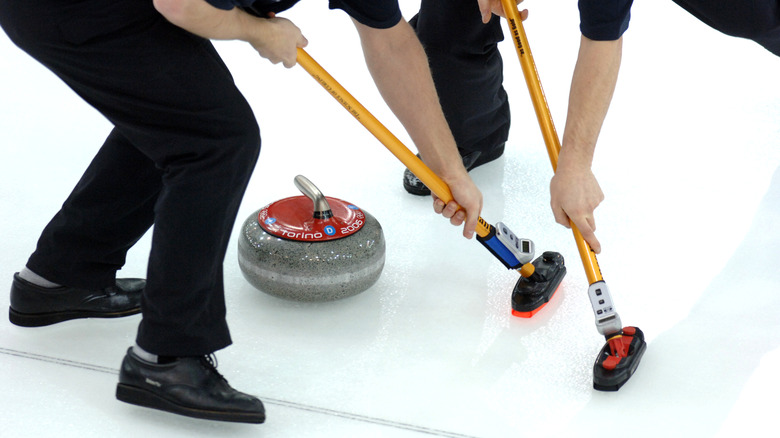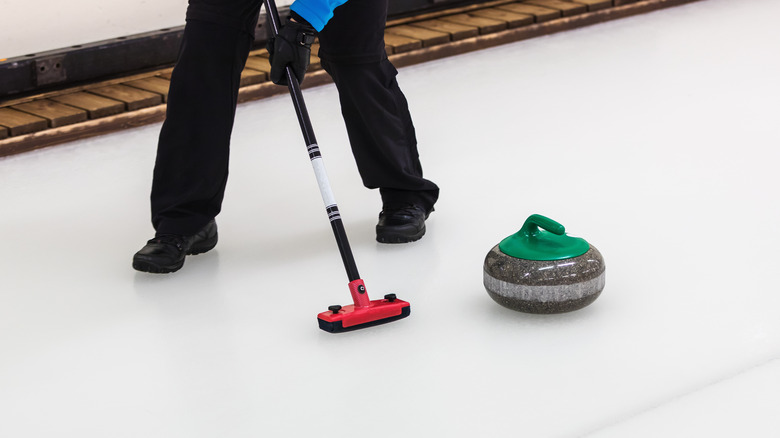The Sport Of Curling Is Older Than You Think
Ever since the founding of the Winter Games in 1924, curling has been an Olympic sport in which many countries have competed. The objective of the game is for each team to propel a granite stone along the surface of ice and toward a given point — with brooms being used to sweep the ice ahead of it when higher speeds are needed since it reduces friction (via Britannica). Like other ice-based sports such as hockey and skating, modern refrigeration has allowed curling to gain substantial followings in countries where ice may either not form in nature consistently or at all (via Howden).
The sport began far earlier than either its current international following or the modern Olympic Games themselves. Though it may be even older, curling (or at least an early precursor to it) was first recorded in 16th century Scotland, where the frozen surfaces of lakes in the winter acted as rinks (via Scottish Curling). While not as convenient to play as other contemporary sports that could be played year-round like soccer/football or golf, curling has nonetheless maintained a substantial following for centuries.
Many countries have curling teams
The first curling clubs were formed in 19th century Scotland, and it was at this time that the sport began to see its first global sprawl when nations with sufficient weather began to take to it. These included Canada, the United States, Switzerland, Scandinavian countries like Sweden and Norway, and even New Zealand (via World Curling Federation). It was also at this point that the first international competitions began to take place, albeit again in northern climates amongst nations that typically had enough access to ice to partake in it at home.
Curling's induction into the Olympics officially made it an international sport, yet there was no league for players until 1957 when one became required for the sport to continue being a part of the Winter games. To this day Canadian players are recognized as the most numerous and proficient players (according to Olympics), but in relatively recent decades that has not stopped comparatively warmer countries such as Spain, France, Brazil, Australia, Nigeria, and China from forming their own teams (via Nigeria Curling Federation).

